How to Sleep Better — Experts Explain Small Changes That Make a Big Difference
It's time to understand how your surroundings can impact your slumber
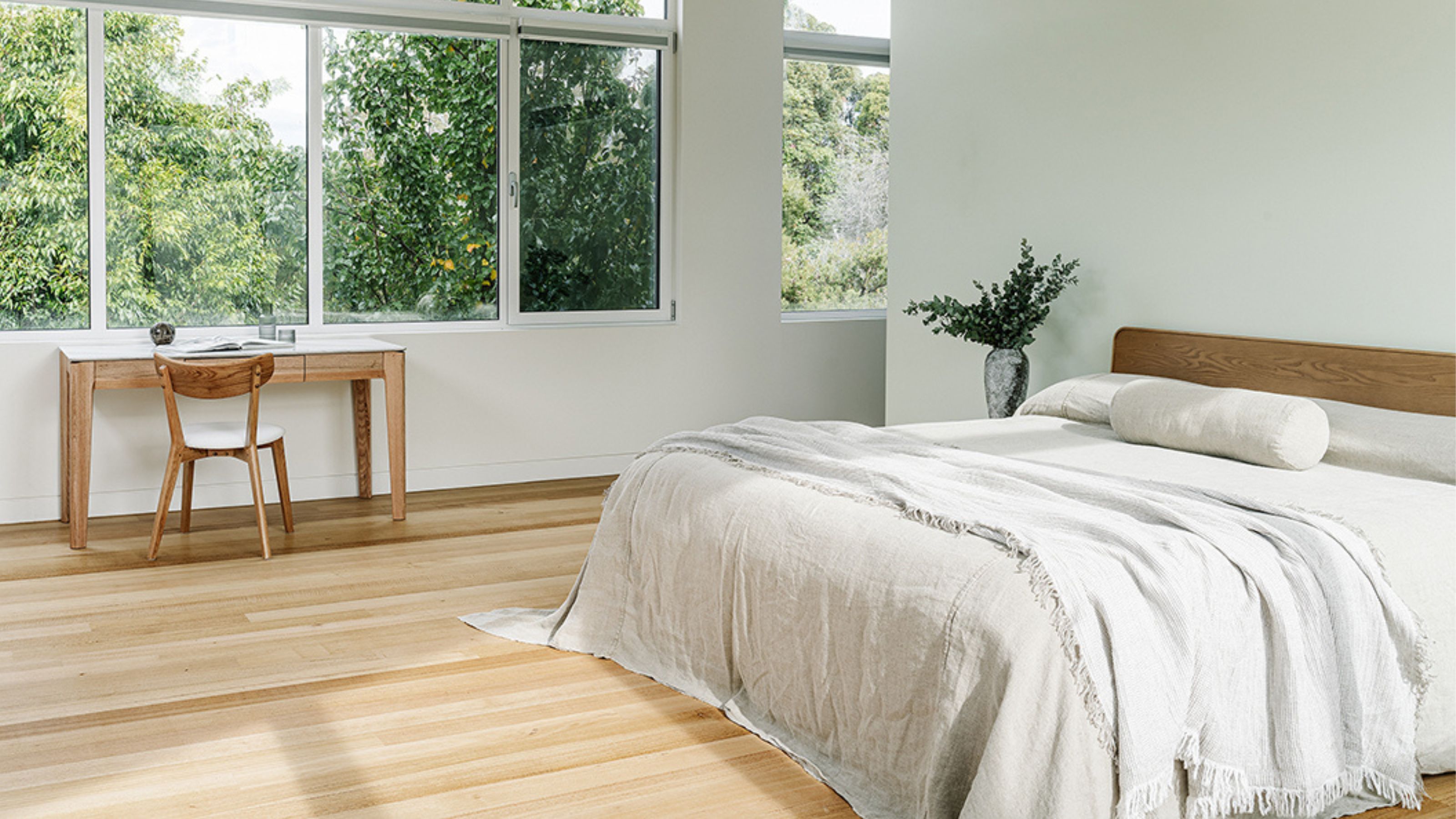
Sleep is the sanctuary to a better state of mind and, of course, overall health. And well, worrying about how to sleep better is a very modern preoccupation. When a group of American sleep scientists studied African and South American hunter-gatherers in 2015, they discovered that these tribes didn’t experience anything like our levels of insomnia. Insomnia, they concluded, is a function of Western lifestyle. “Modern society is not conducive to sleep,” concurs Prof Guy Leschziner, consultant neurologist at Guy’s and St Thomas’s Hospital in London and author of The Nocturnal Brain. “A racing or worrying mind is not good for sleep - nor is a bright computer screen, surfing the internet or social media.”
Assuming we don’t want to return to cave life or — heaven forbid — relinquish our devices, what bedroom ideas can we utilize to optimise sleep? Sleeplessness is a common problem: one-third of British people suffer from insomnia, and even more have off-nights here and there. Fortunately, scientific progress means we’re no longer in the dark about how to improve matters. For starters, those fabled eight hours a night needn’t be the goal. “Somewhere between seven and eight and a half hours is considered optimal,” Leschziner explains. “There is good evidence that regularly getting fewer than seven hours or more than nine isn’t good for you”. (Consequences can include heart disease, obesity, Alzheimer's and depression.)
But one size doesn't fit all, and variation depends on age and genetics. So how much sleep do you actually need? Check in with how you’re feeling, says Lisa Artis, sleep adviser for the Sleep Charity. “If your day is still a slog by lunchtime and you find yourself turning to junk food and caffeine to get you through, then you’re not getting enough.”
How to Sleep Better
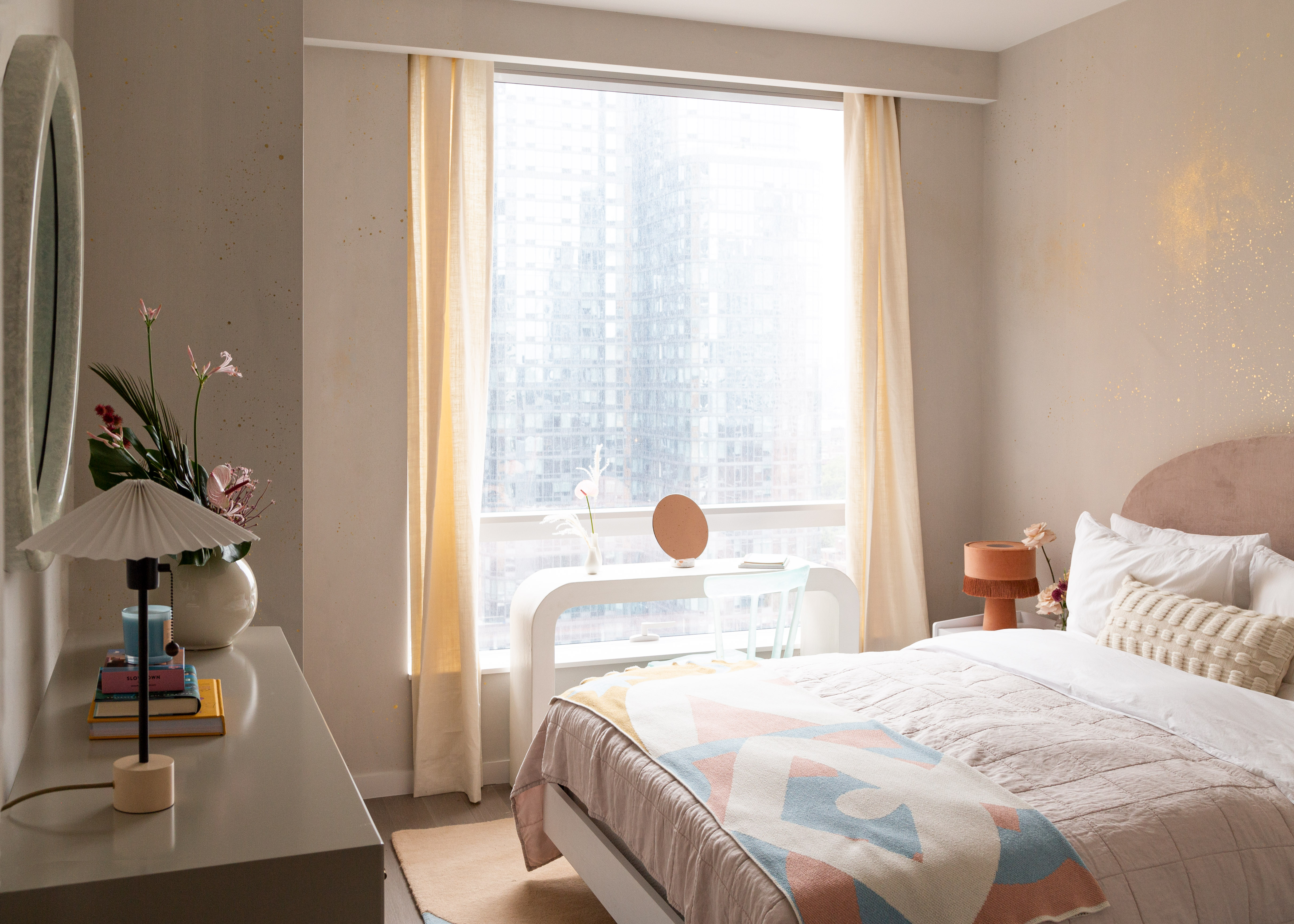
As soon as you rise, let in the light
Prepping for a good night’s sleep should start the minute you wake up. Experts agree we should rise at the same time daily, even at weekends - this should be matched to our chronotype (ie, whether you’re a lark or a night owl), and any more than an hour’s deviation either side will confuse your circadian rhythm. As soon as you rise, let in the daylight: “Bright light helps people wake up more quickly,” Leschziner says. “It’s probably the strongest driver of our circadian rhythm.” It’s why you’ll also want blackout blinds or think carefully about your bedroom curtain ideas, to avoid light exposure at the wrong time of day.
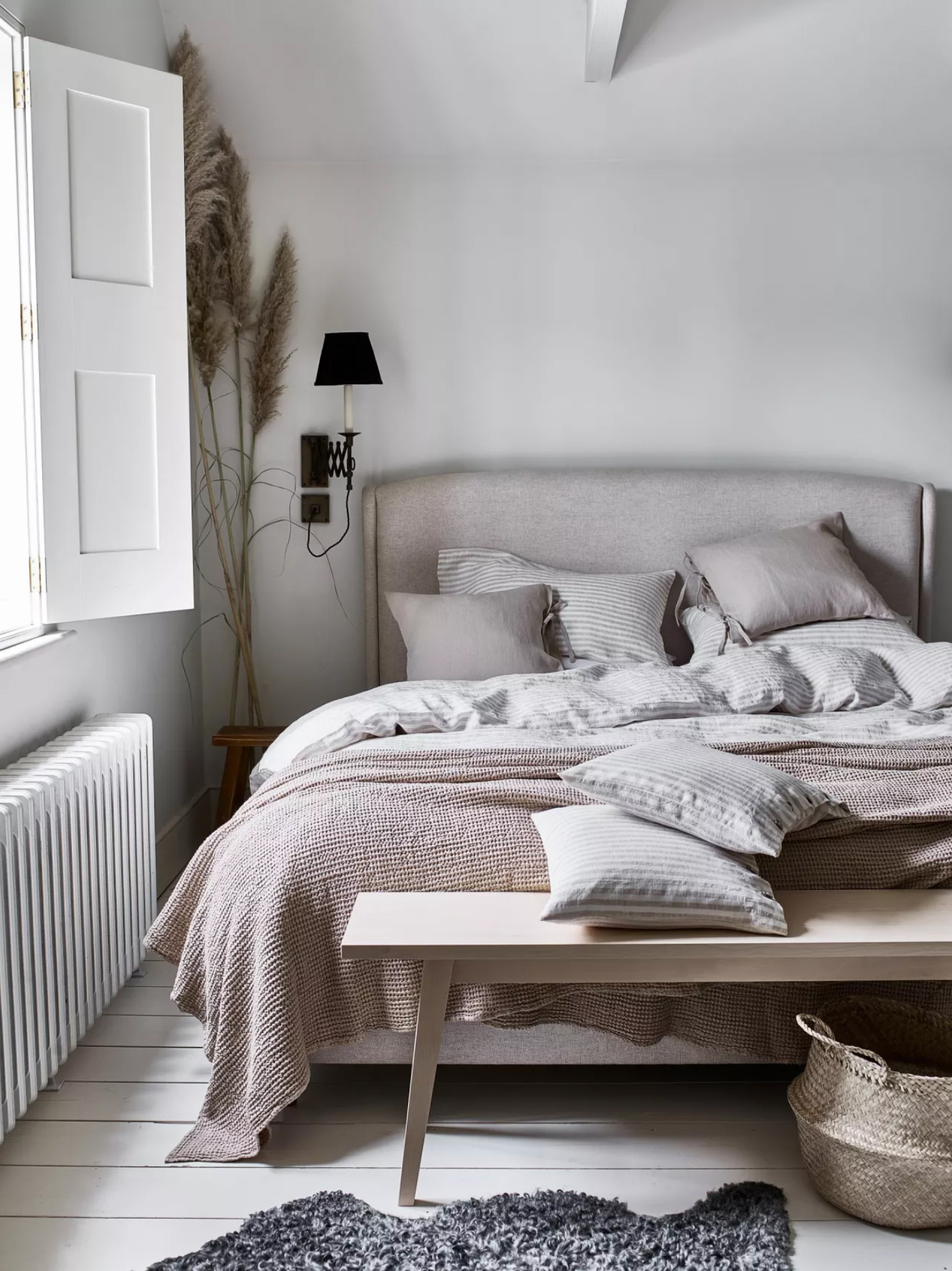
Muted tones are more restful
In fact, it’s a good opportunity to rethink bedroom design. “That doesn’t mean you need to have a pale color scheme,” Artis says. Strong, indulgent colors can work: “You just don’t want it too bold - muted tones are more restful.” Grey bedroom ideas tend to be the most failsafe. Artis also recommends decluttering the bedroom: “It’s about creating a space that is serene and calm.”
Bedlinen, meanwhile, should be made from natural fibres, so that they wick away sweat, though neither feather or synthetic pillows and duvets seem to have the edge - that can be down to personal preference - though you'll need one of the best mattresses in order to start your sleep off right.
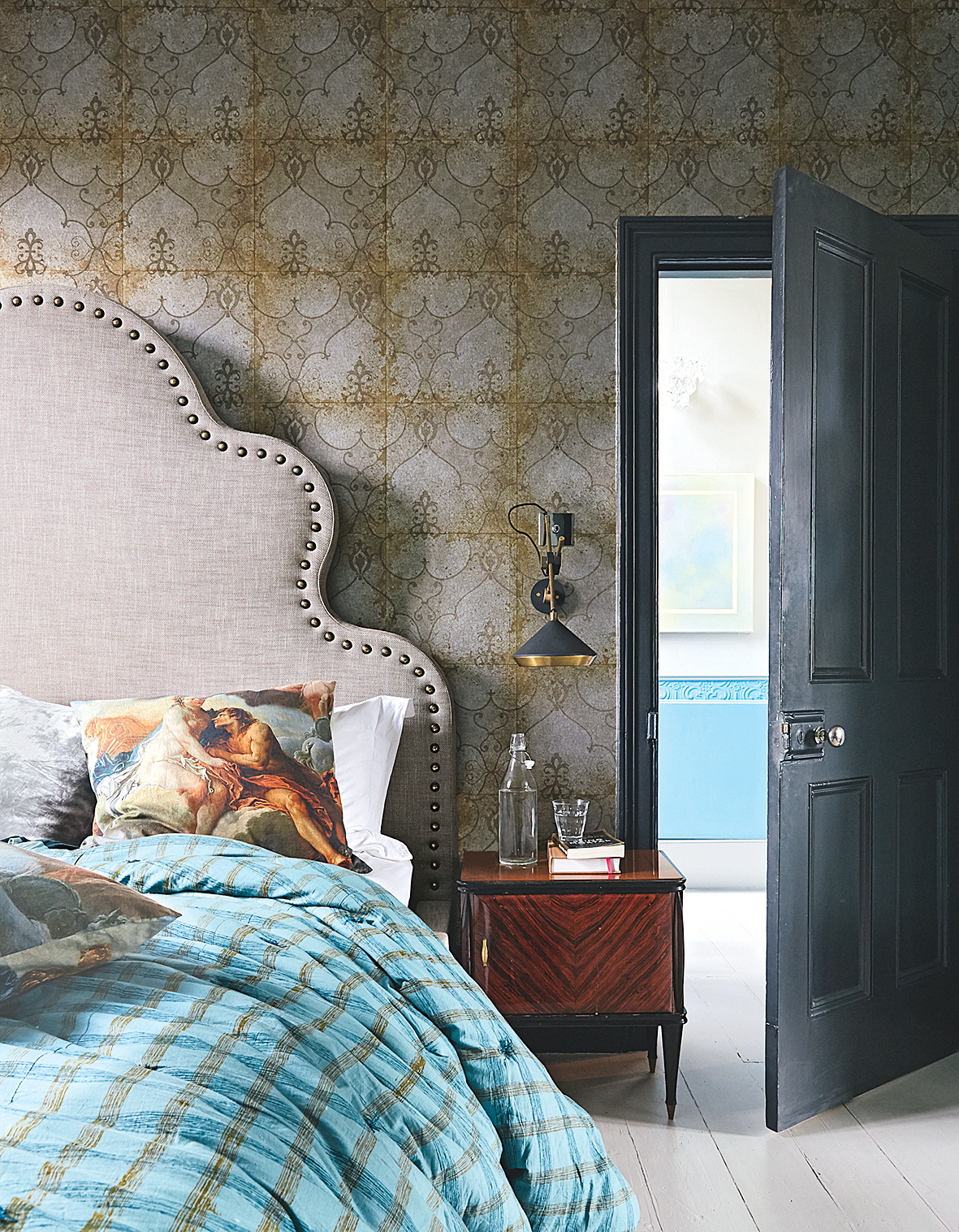
Good sleep hygiene requires a holistic approach throughout the day, and should include both physical and mental exertion. “Exercise promotes both the quality and quantity of sleep,” Artis explains. “It tires the body out, it relieves stress, and is good for mental health.” But she advises against intense, adrenaline-boosting exercise within two hours of bedtime. Unsurprisingly, caffeine and alcohol are widely regarded as the greatest sleep saboteurs - well, except by those who can sink a bedtime espresso. Dr Hugh Selsick, who founded the NHS’s first sleeplessness centre, The Insomnia Clinic at Royal London Hospital for Integrated Medicine, recommends avoiding caffeine after 2 pm, and alcohol in the evenings, or altogether if possible. Most people’s sleep will be more fragmented after alcohol; it also tends to reduce that deep, restorative sleep.
If the burgeoning sleep industry is to be believed, our sleep woes could be easily fixed by investing in, say, expensive weighted blankets, supplements and even hooded pillows. Proceed with caution, Leschziner warns: “There are a lot of people with sleep problems, and a lot of people exploiting that.” For starters, ditch the sleep tracker, he advises: “Their accuracy is dubious, especially if you have sleep issues.” And if a sleep tracker is saying you've slept terribly, “that’s probably going to give you a worse night's sleep,” he adds. “I’ve seen people descend into a spiral of anxiety, depression and worsening insomnia because the tracker is telling them they're only getting an hour of dreaming sleep.”
In fact, anxiety is sleep’s worst enemy. If you worry about the amount of sleep you’re getting, and your sleep hygiene is already squeaky clean, spare yourself the gimmicks and consider CBTi, or cognitive behavioural technique for insomnia. Widely regarded as the gold standard treatment, it was brought to Britain by Selsick. It is now available in a handful of NHS clinics (so far, East Grinstead, Guildford and Newcastle) and via the Sleepio app (£3.85 a week). With efficacy rates at about 70-80%, it works by removing the negative associations of the bedroom - ie, that it’s a place for tossing and turning, but also working, watching TV, doom scrolling, paying bills, arguing etc - and replaces them with new, positive connections (in CBTi, the bedroom is only for sleeping and sex). Eventually, your body recognises that when in bed, its only job is to sleep. The five-week programme has no set bedtime — you only go to bed when you can’t keep your eyes open anymore: “This gives you a much better chance of falling asleep and not being exposed to anxieties around sleeplessness,” Selsick explains. There is, however, a set rising time, which ensures that you begin to feel tired at the same time every night.
If you believe you have insomnia, don’t delay in getting to a doctor - it may also be that you have a (very treatable) sleep disorder (apnoea, restless leg syndrome, etc). There’s one sleep disorder, however, that many of us perhaps subscribe to: Revenge Bedtime Procrastination, ie, we resist bed because we haven’t had enough leisure time in our busy day - it’s a classic symptom of modern life. If you want to sleep better, Leschziner’s key tip is to “recognise the fact that sleep is important and if you have the choice to sleep when you can, prioritise it”.
Tips for Sleeping Better
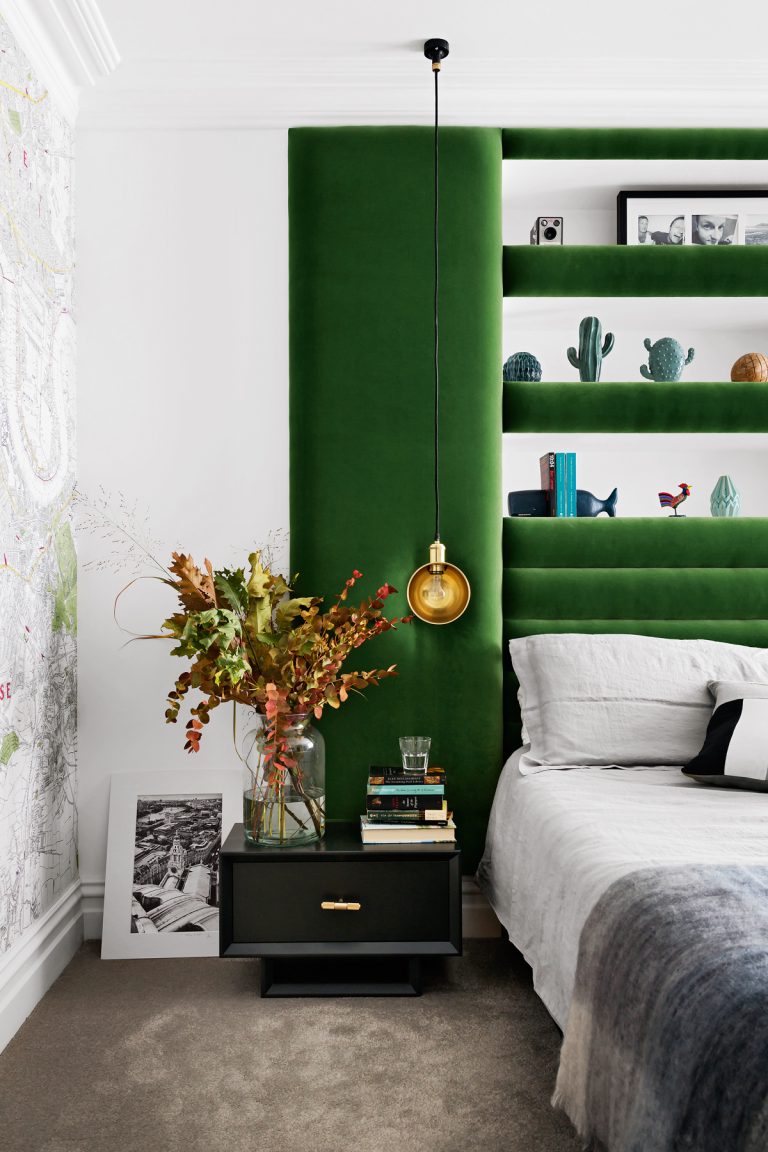
Everyone dreams of a plush bed where they can de-stress and recharge. But more often than not, many of us find it hard to sleep well or feel fully rejuvenated. Sometimes, it may not be your fault, but the way your room is designed.
To help you have the most relaxing space, we asked experts for tips on how to design the bedroom well, and how to sleep better. Take a look, and get ready for a good night's sleep.
1. Choose the Right Mattress
It's always smart to start with the basics. Creating a strong foundation for your bedroom allows you to build up from there, developing the room's aesthetic around its core function.
But where to start? Claire Spring of Silk and Snow recommends beginning with the mattress. "A good mattress can make or break your sleep; if you don’t like your mattress, it won’t feel like a sanctuary," says Claire. "Personally, a memory foam mattress, like the S&S mattress — offers ideal pain point relief so it feels like you’re sleeping on a cloud."
Another way of ensuring you get a good night's sleep is by paying attention to the quality of your mattress. It can determine the restfulness of your sleep, so ensuring that you choose one that feels comfortable to you is crucial.
"After you find your perfect mattress, all eyes are on the bed frame," says Claire. "If you’re like me and like to read in bed, you’ll want to find a soft headboard to lean against. I love the cloud-like look and softness of the boucle, which is why I chose to design our wooden bed frame with a boucle headboard!"
2. Eliminate Distractions
We all know that we shouldn't be browsing on our phones before bed, but why not take it one step further and design your room with the principles of proper sleep hygiene in mind?
Dr Chad Eldridge, sleep and well-being advisor to Hästens, is an advocate for this approach. "From my personal experience, I eliminate the things that are distracting to me or may cause any form of stress around sleep or remind me of the things that keep my mind going," he says. "I have no clocks in the room, no electronics, and I keep it simple with no clutter."
If you are looking for some design elements, Chad suggests: "Some bedroom plants to have the feel of nature, and pictures or items that are soothing and provide comfort to me. This will be different from person to person."
His most important piece of advice for creating a sleep sanctuary is: "Bring the things in that make you feel at ease and eliminate the things that may trigger you or spark your mind."
3. Build the Right Atmosphere
Your sleep sanctuary stretches beyond the modern bedroom furniture you choose. Every element of this space can enhance, or take away from the serene environment you are aiming to create.
"Consider how to optimize the space for comfort and pay close attention to light, temperature, humidity, and noise," suggests Brandon Peters, author of Sleep Through Insomnia. "Reserve the bedroom as a space for sleep. Go to bed feeling sleepy, and leave when awake. This conditioning helps to associate the bedroom with sleep and reduces the likelihood of experiencing insomnia."
"To turn your bedroom into a sleep sanctuary, focus on creating a serene and comfortable atmosphere," says Audrey Scheck, founder of Audrey Scheck Design. "Declutter the space to promote a sense of calm, and consider incorporating soothing neutral colors and soft textures. Enhance the ambiance with dimmable bedroom lighting and blackout curtains to block out unwanted light."
FAQs
How Can I Sleep Better at Night Naturally?
There are some easy ways to sleep better naturally, advises Dr Allie Hare, Secretary of the British Sleep Society, and a consultant in sleep and respiratory medicine at the Royal Brompton Hospital London. The best approach, she says, is to have a healthy, balanced diet “with plenty of vegetables, some fruits, protein and slow-release carbs, so that blood sugars are stable”. Avoid big, heavy meals a couple of hours before bedtime, she adds, as reflux or indigestion can cause sleep disturbances.
How Can I Improve My Sleep?
• Start the day off by opening the curtains the moment you wake up
• Choose muted tones for your bedroom
• Make your bed using bedlinen made from natural fibers
• Get some exercise during the day
• Don't give yourself anxiety by worrying about sleep trackers
• Go to bed when only you can no longer keep your eyes open
Be The First To Know
The Livingetc newsletters are your inside source for what’s shaping interiors now - and what’s next. Discover trend forecasts, smart style ideas, and curated shopping inspiration that brings design to life. Subscribe today and stay ahead of the curve.
Fleur Britten is a well-respected journalist who for years was the Senior Features Editor at Sunday Times Style. She is known as one of the smartest lifestyle journalists around, revered for being able to decode trends and report on new zeitgeists as they happen. She now writes for the Telegraph, Livingetc, Vogue, The Times, Harper's Bazaar and the Guardian.
-
 The Weighted Blanket That Doesn’t Make You Sweat (and the Eye Mask to Match)
The Weighted Blanket That Doesn’t Make You Sweat (and the Eye Mask to Match)Luxury has weight. And apparently, volcanic minerals
By Julia Demer
-
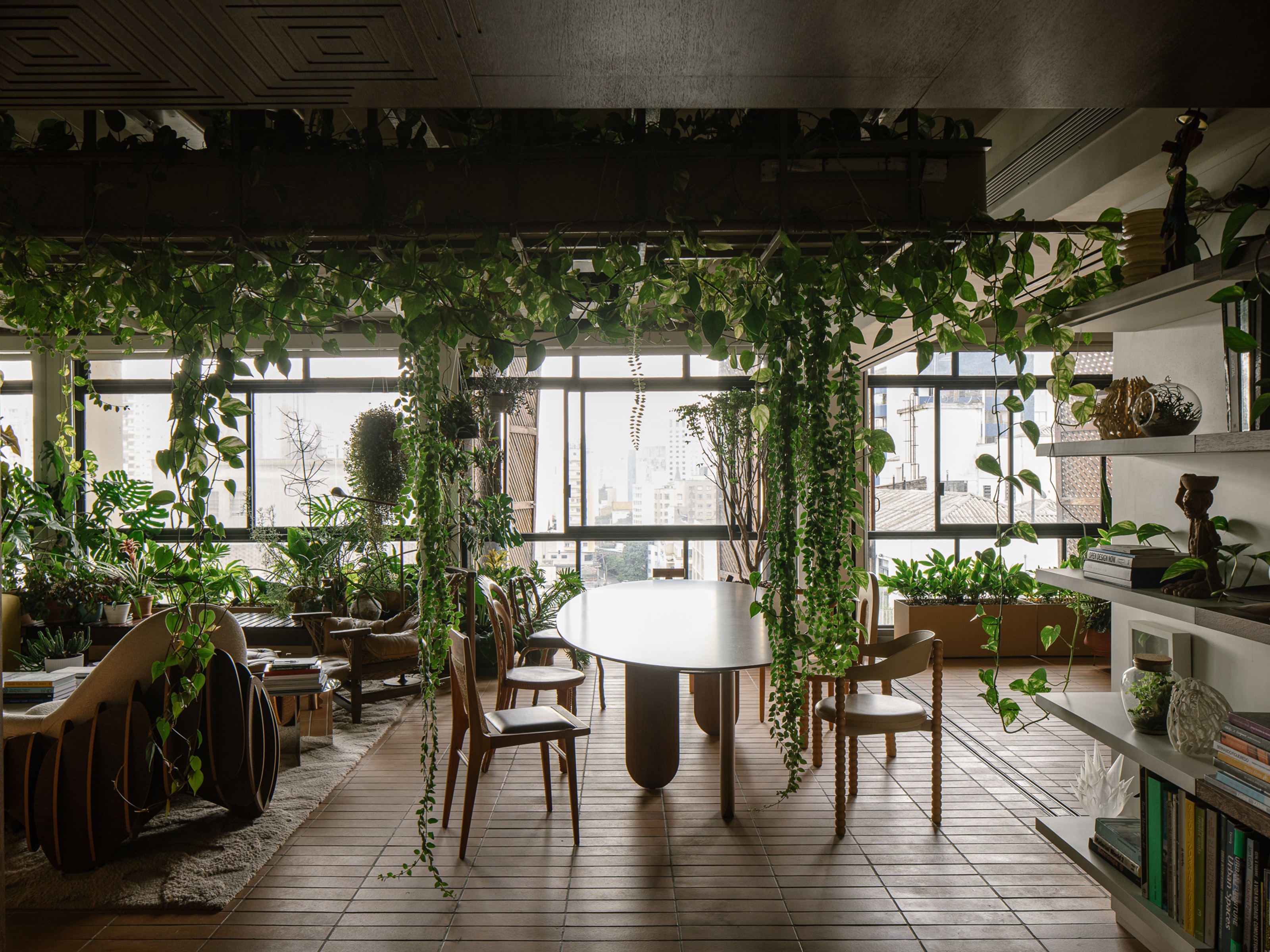 What Is Biophilic Interior Design? I'm an Actual Biophilic Designer, and This Is How to Apply It to Your Home
What Is Biophilic Interior Design? I'm an Actual Biophilic Designer, and This Is How to Apply It to Your HomeA biophilic designer explains the core principles of this practice, and the easy ways you can apply it to your home's design
By Marianna Popejoy
-
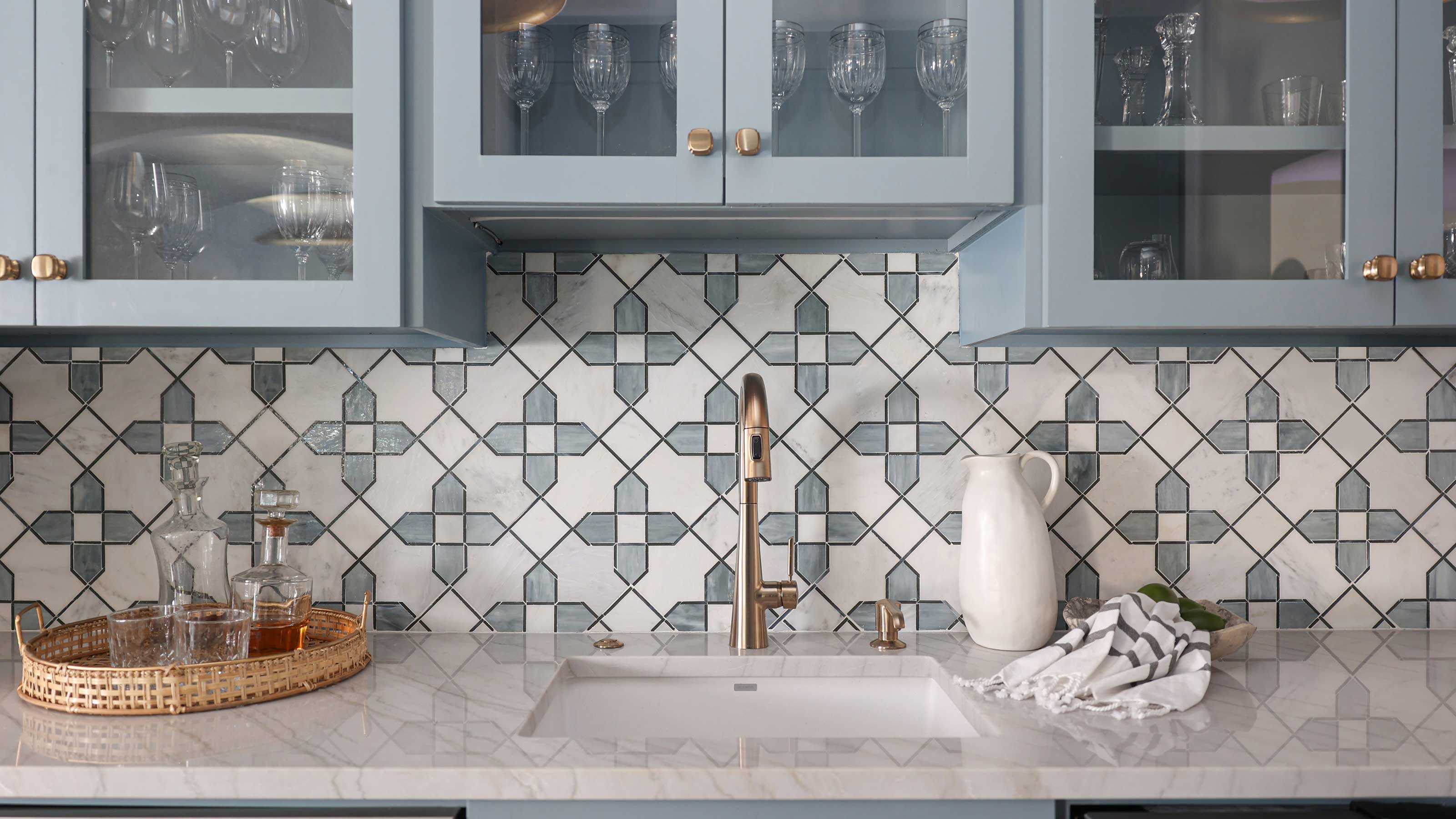 Should Your Kitchen Tap Match the Rest of Your Kitchen? Not All Designers See Eye-to-Eye
Should Your Kitchen Tap Match the Rest of Your Kitchen? Not All Designers See Eye-to-EyeWe asked the experts for their opinions on whether a kitchen tap should match the rest of the kitchen, and they didn't all see eye to eye
By Natasha Brinsmead
-
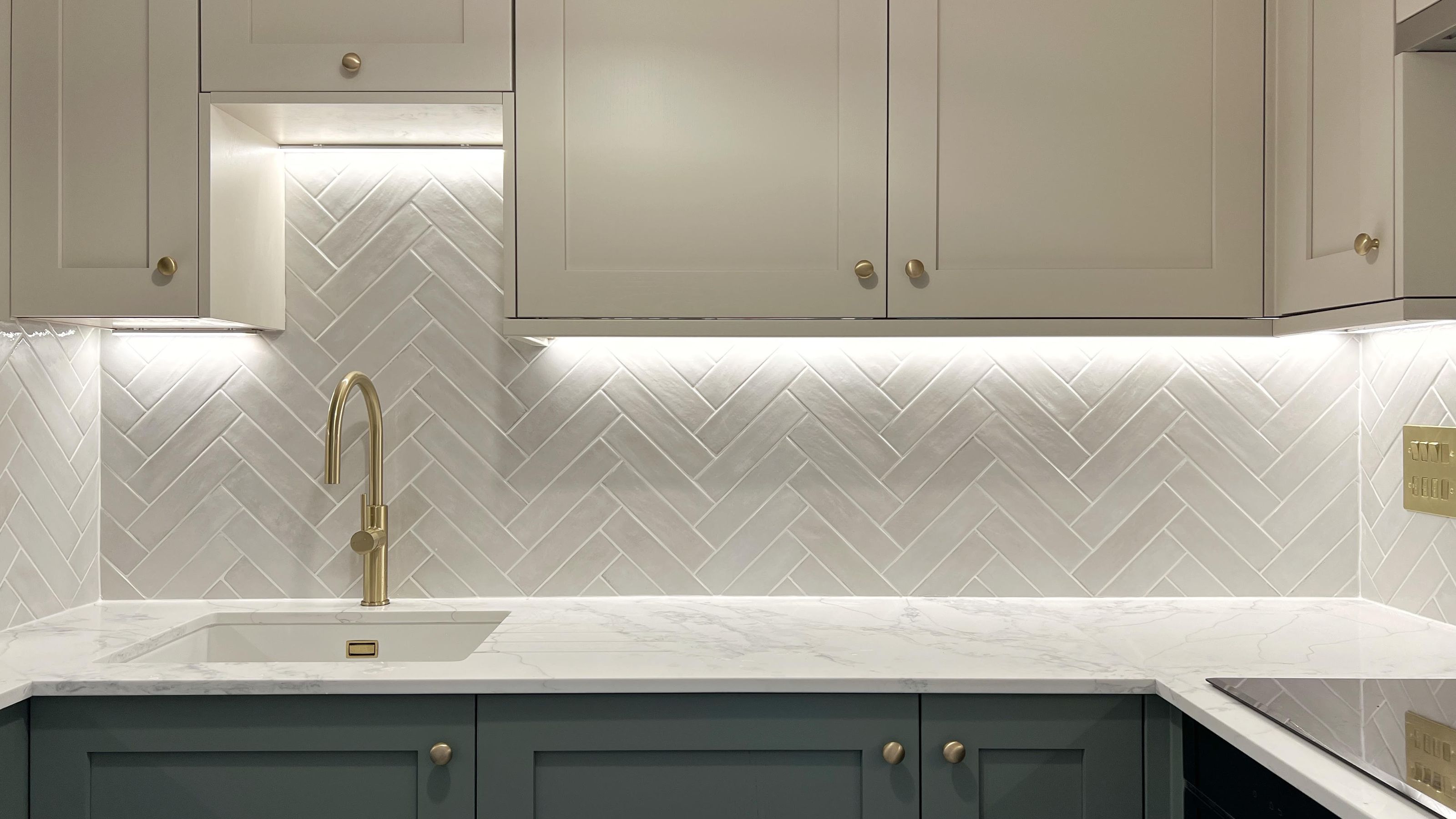 3 Things I Wish I Knew Before Renovating My Small Kitchen — Number One? Always Be Prepared...
3 Things I Wish I Knew Before Renovating My Small Kitchen — Number One? Always Be Prepared...After taking on my own small kitchen project recently, here are the main takeaways I've learned for the next time I renovate one
By Faiza Saqib
-
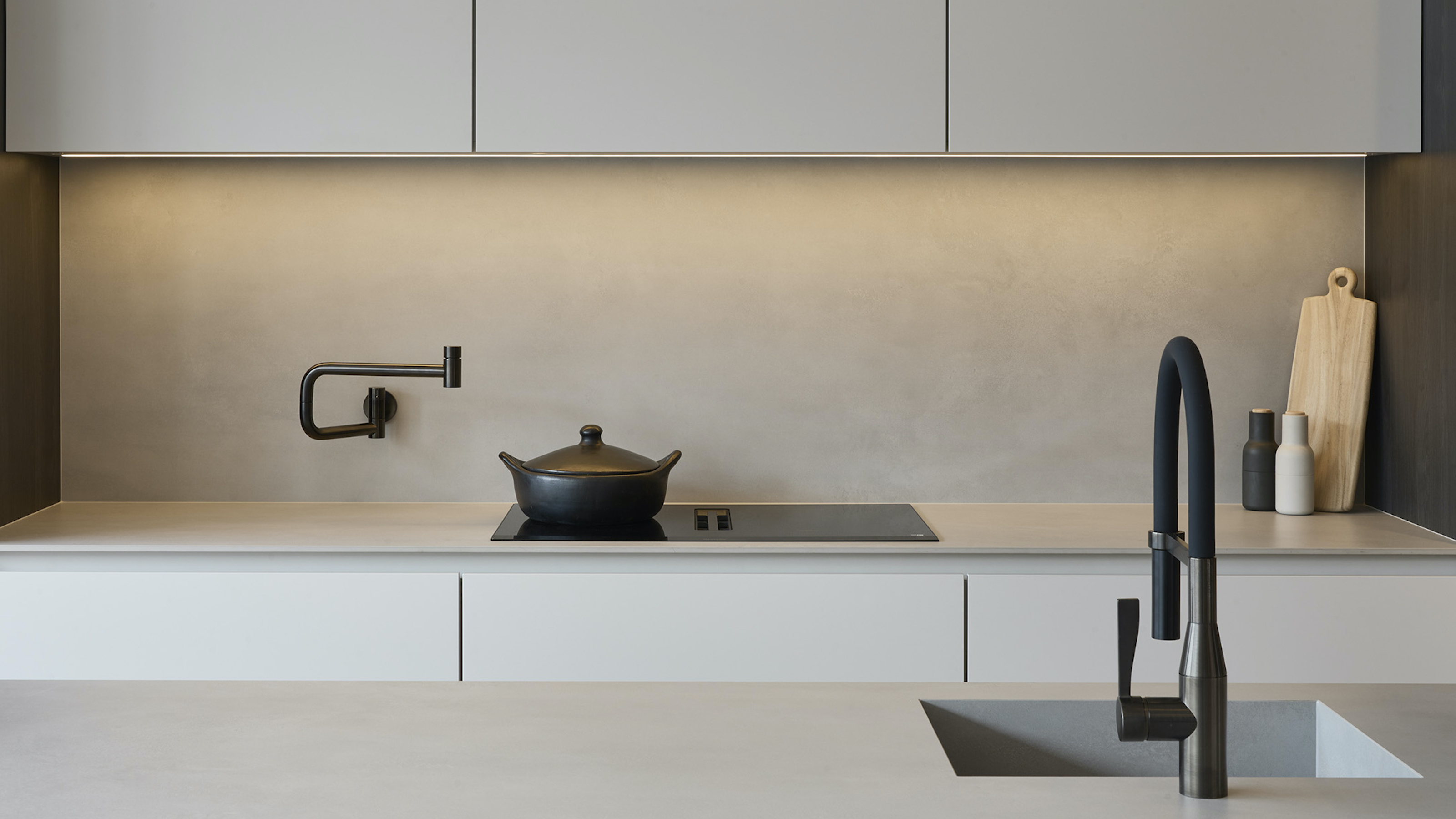 The 10 Different Types of Kitchen Taps — And the Pros and Cons of Each One to Know Before You Pick
The 10 Different Types of Kitchen Taps — And the Pros and Cons of Each One to Know Before You PickFrom sleek pull-outs to vintage bridge taps, explore 10 kitchen tap styles that mix function, flair, and a splash of cool
By Linda Clayton
-
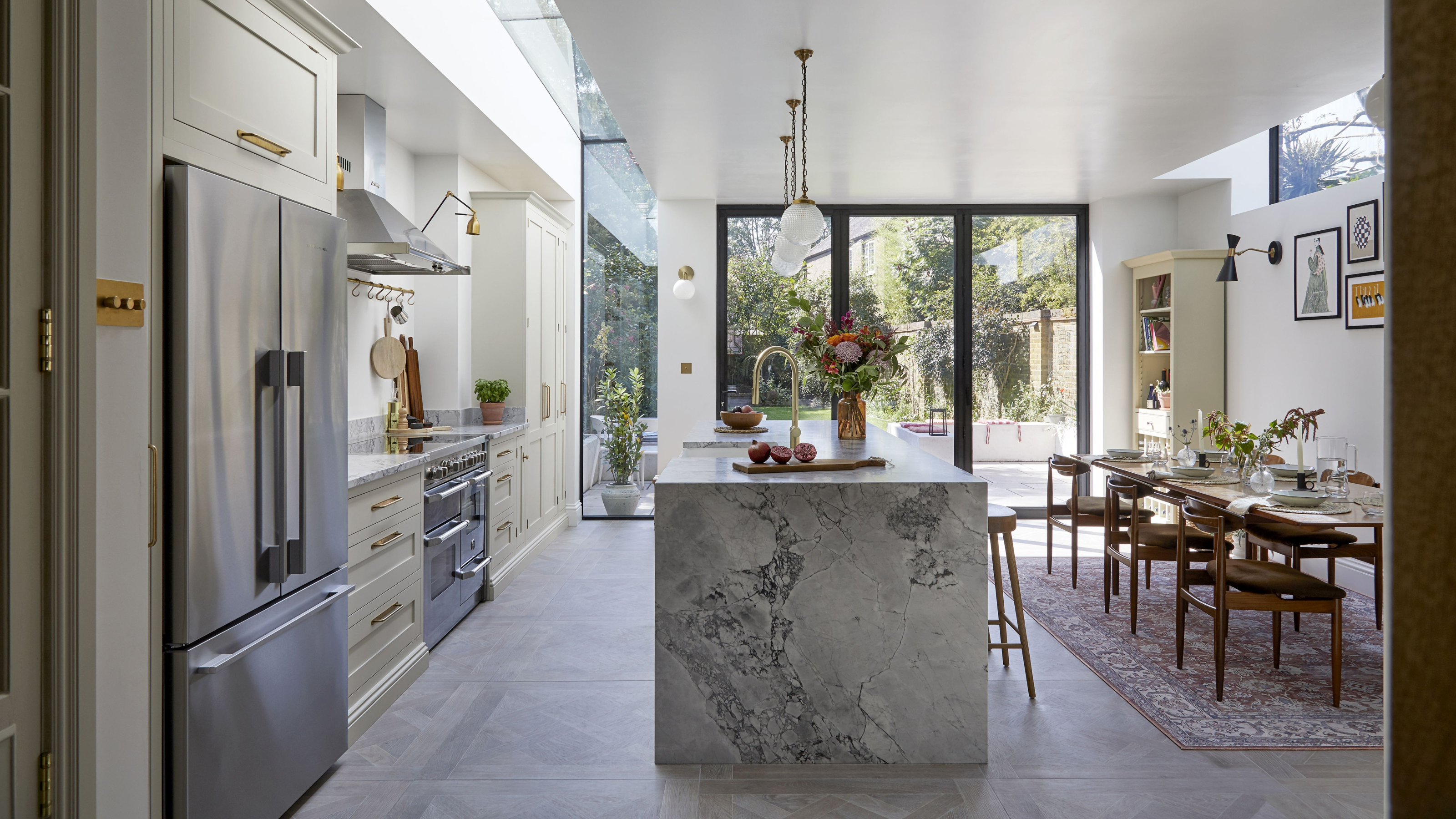 7 Budgeting Mistakes to Avoid When Planning Your Kitchen Extension
7 Budgeting Mistakes to Avoid When Planning Your Kitchen ExtensionDesigning a kitchen extension on a strict budget requires you to work smarter, not harder. Avoiding these slip ups is the first step to success.
By Maya Glantz
-
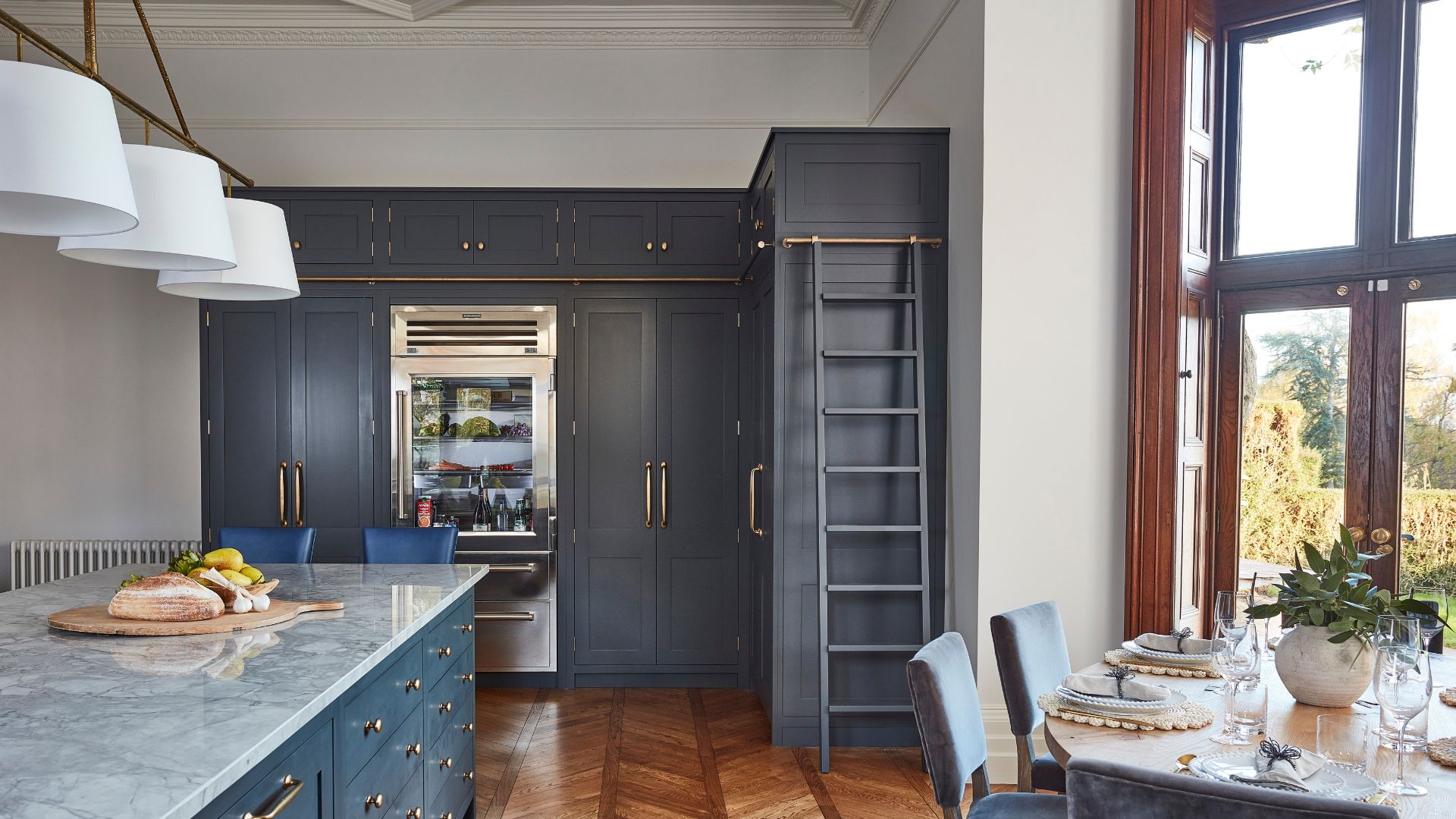 Kris Jenner’s 'All-Green' Glass Fridge Is My Organization Inspo of the Week — Here Are 5 Smart Storage Takeaways I'll Be Adopting
Kris Jenner’s 'All-Green' Glass Fridge Is My Organization Inspo of the Week — Here Are 5 Smart Storage Takeaways I'll Be AdoptingIf you're looking for fridgescaping inspiration, you might not think to look to Kris. But her all-green fridge says otherwise. Here are five tips we've learnt.
By Amiya Baratan
-
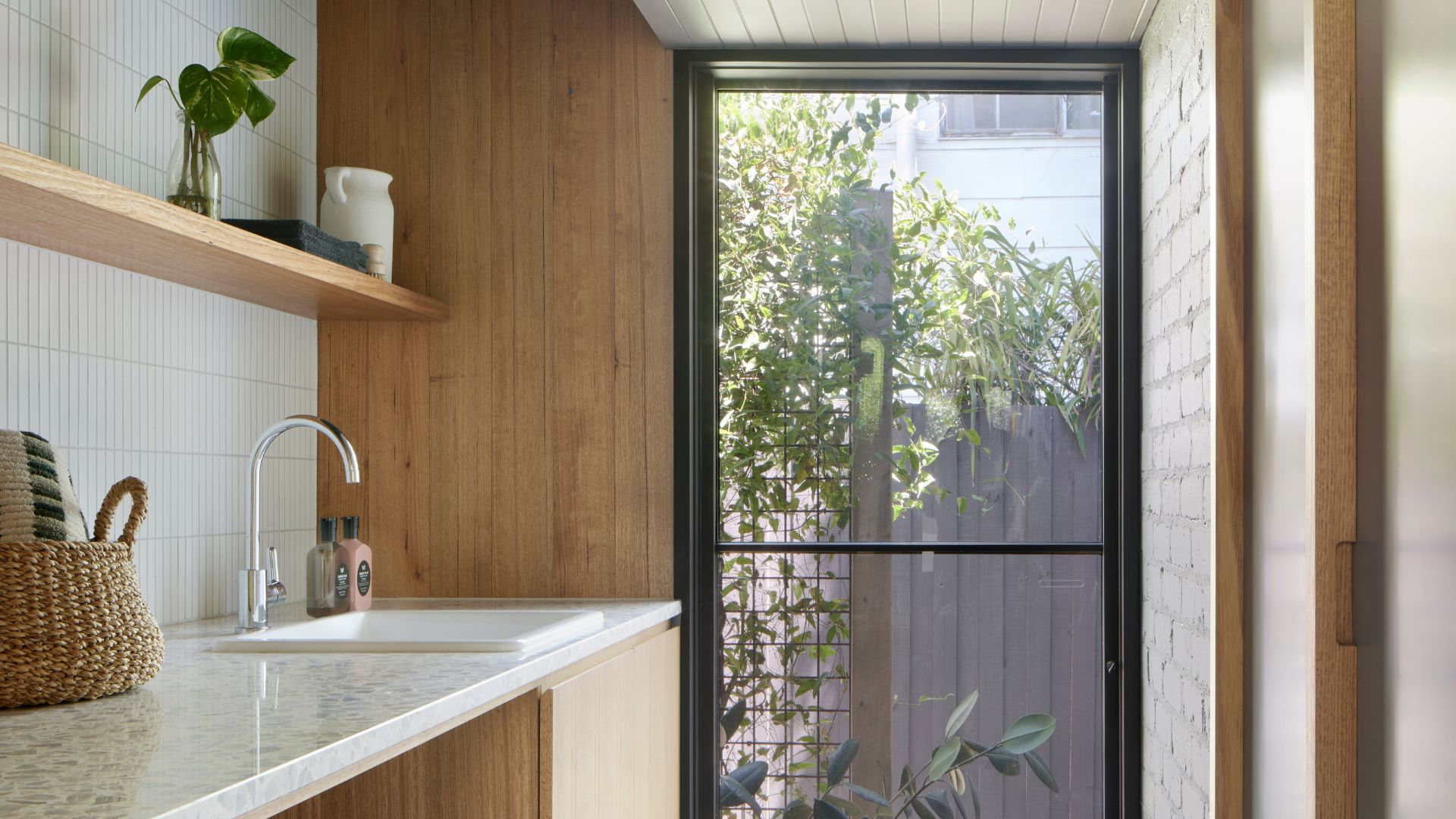 This Brilliant, Space-Saving Laundry Room Feature Makes Ugly and Clunky Drying Racks a Thing of the Past
This Brilliant, Space-Saving Laundry Room Feature Makes Ugly and Clunky Drying Racks a Thing of the PastSick of wheeling out that awkward-to-put-up drying rack all the time? This clever utility room design is something to consider for your space
By Amiya Baratan
-
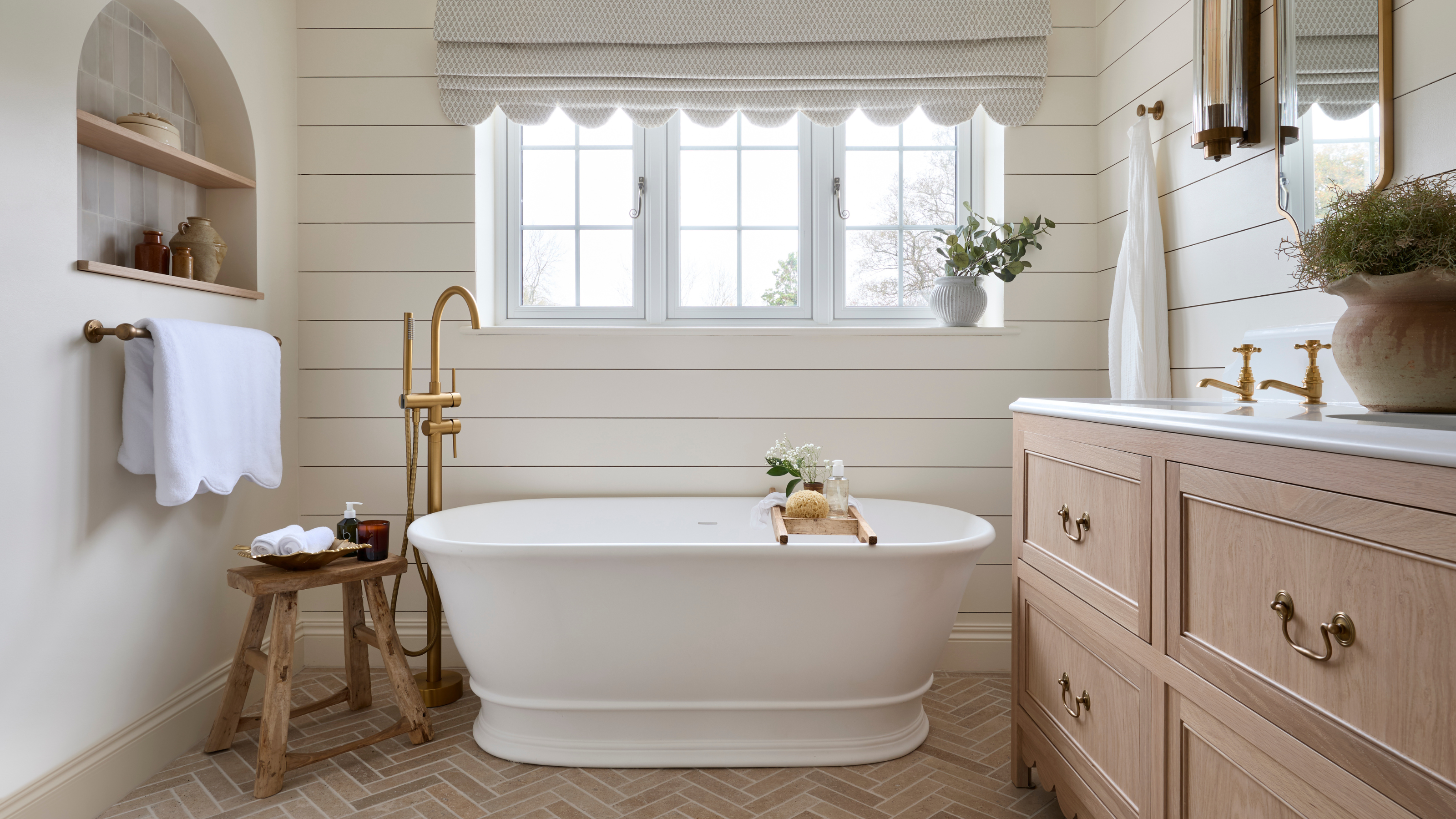 I'm Obsessing Over Brick Flooring in Bathrooms — It Might Be My Favorite Way to Bring Character to These Spaces
I'm Obsessing Over Brick Flooring in Bathrooms — It Might Be My Favorite Way to Bring Character to These SpacesLooking to create a rustic, cozy bathroom? A brick floor might just be the answer
By Maya Glantz
-
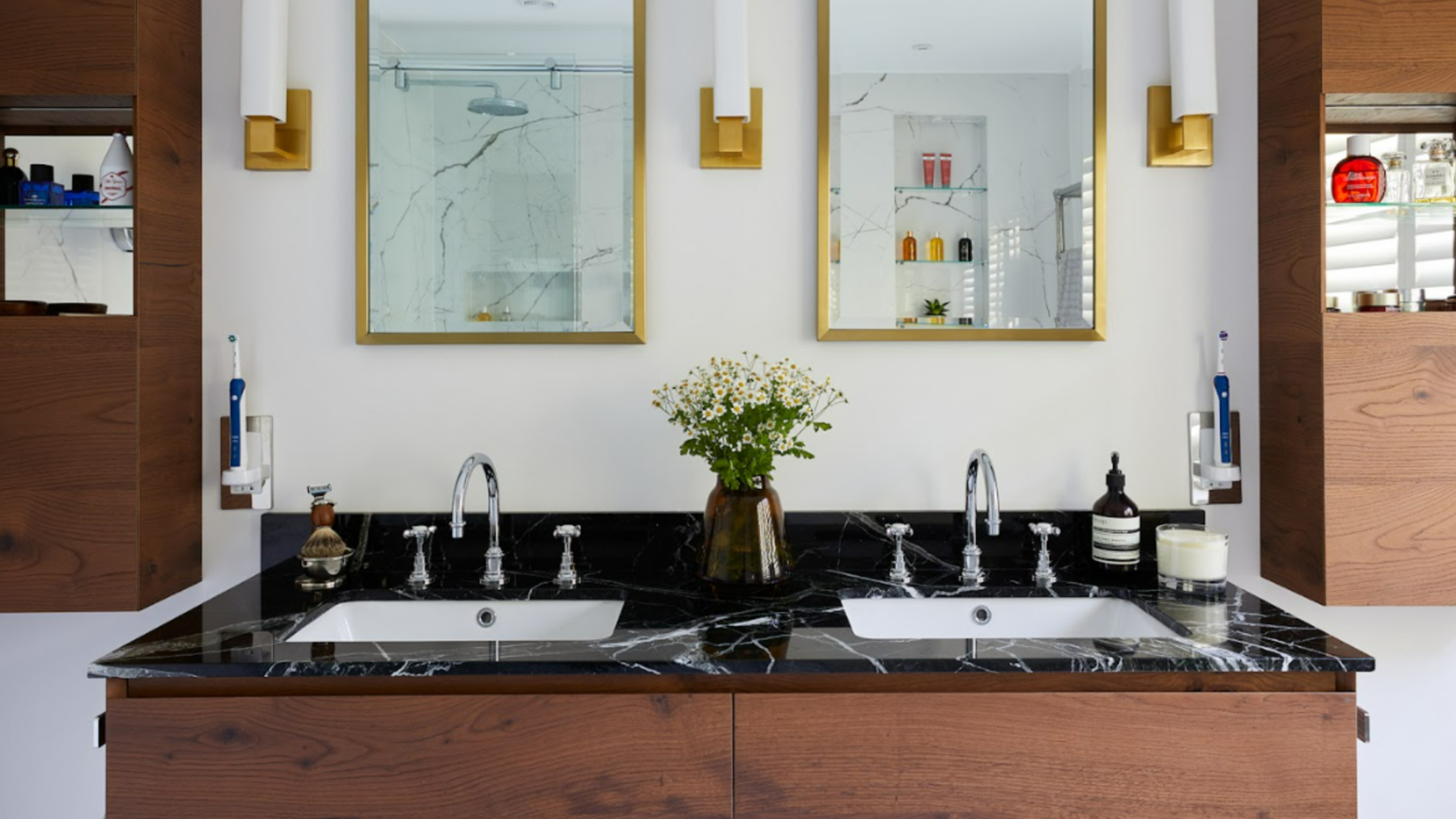 Should I Go for a Mixer or Standard Tap in My Bathroom? The Debate Might Be Finally Settled
Should I Go for a Mixer or Standard Tap in My Bathroom? The Debate Might Be Finally SettledThe experts weigh in on the choice between a standard tap and a mixer, so you know which one to choose.
By Maya Glantz